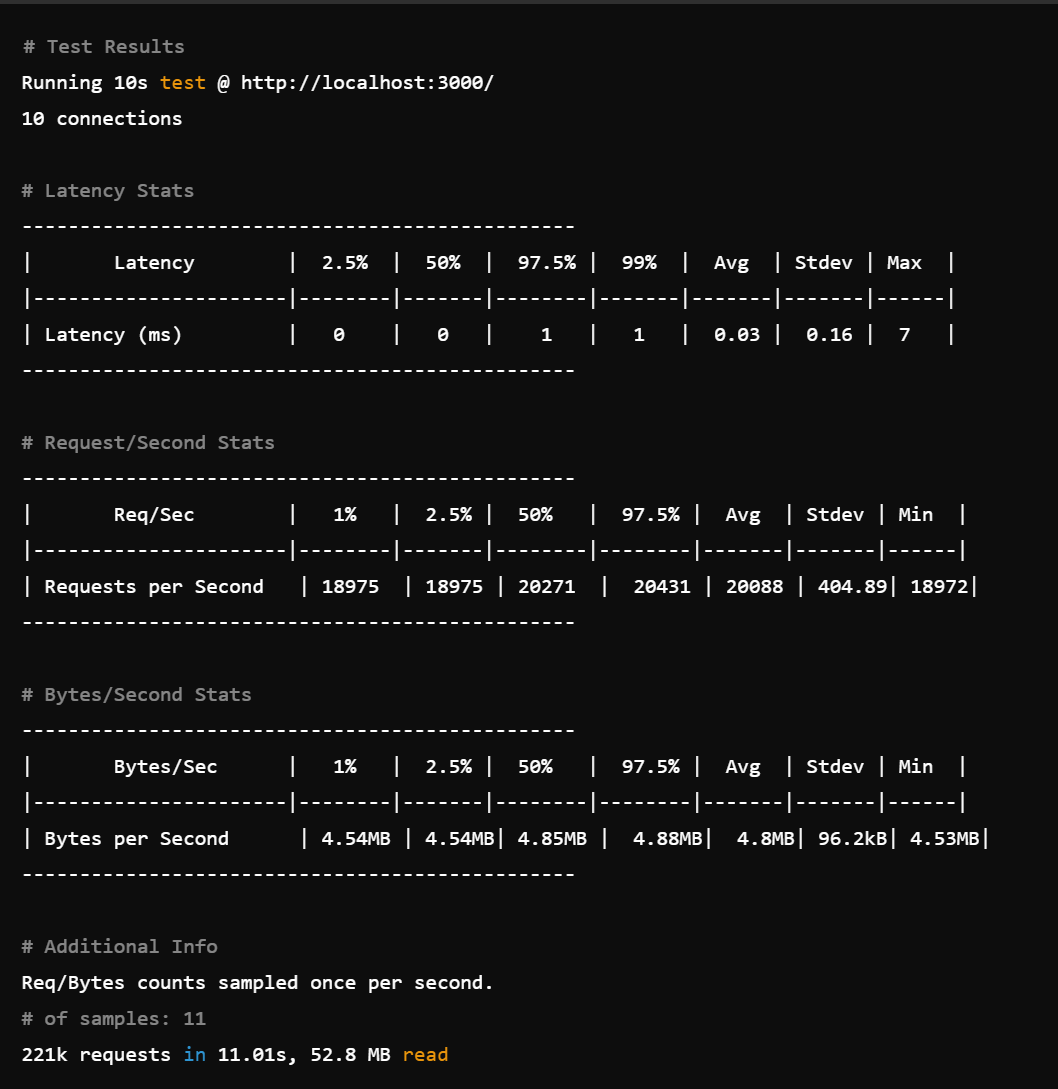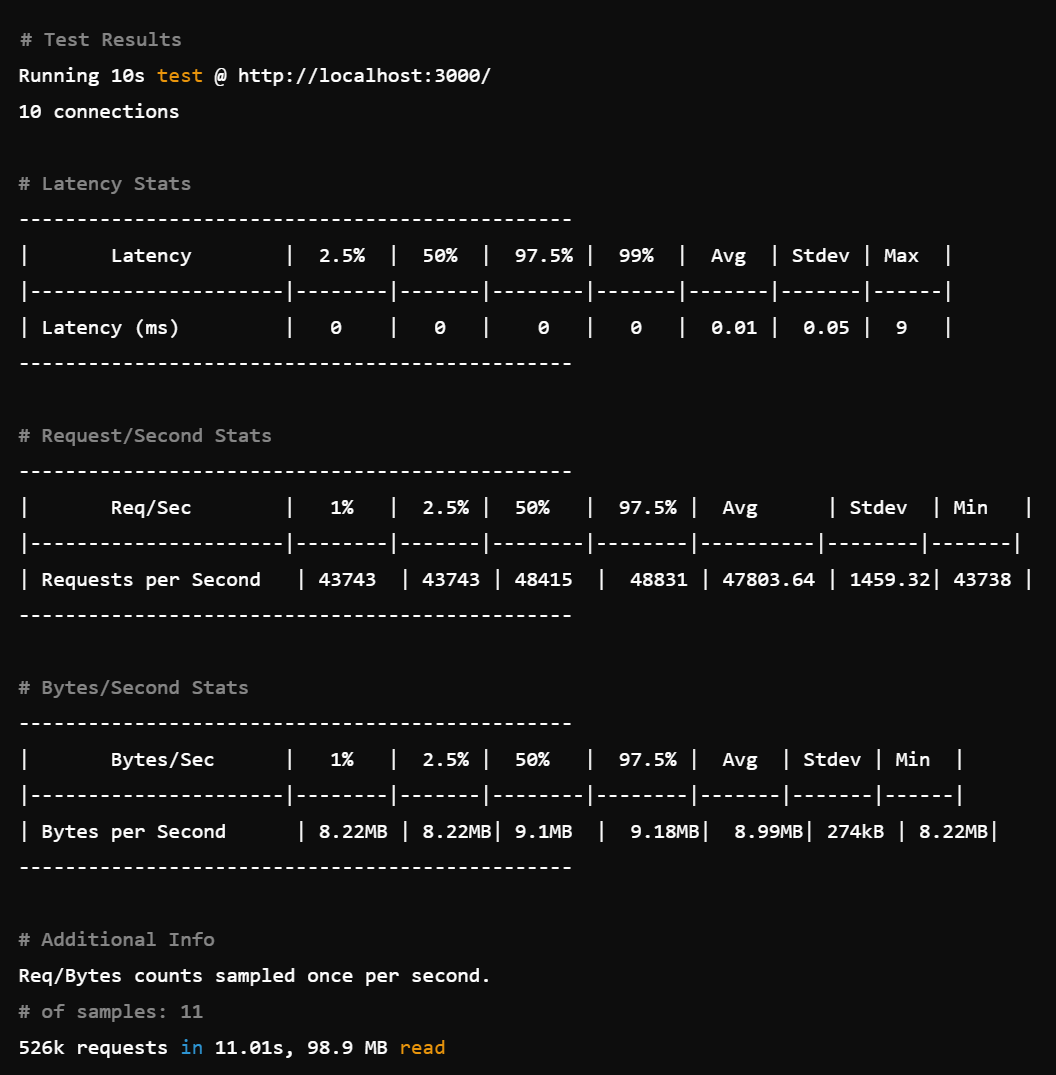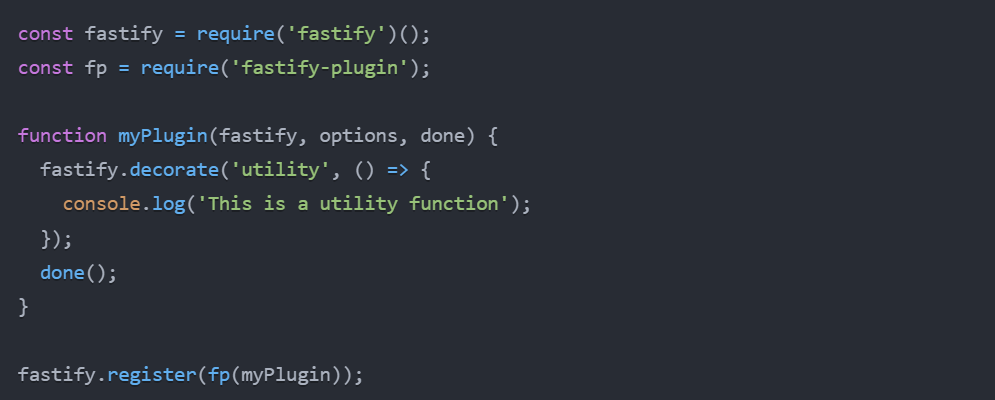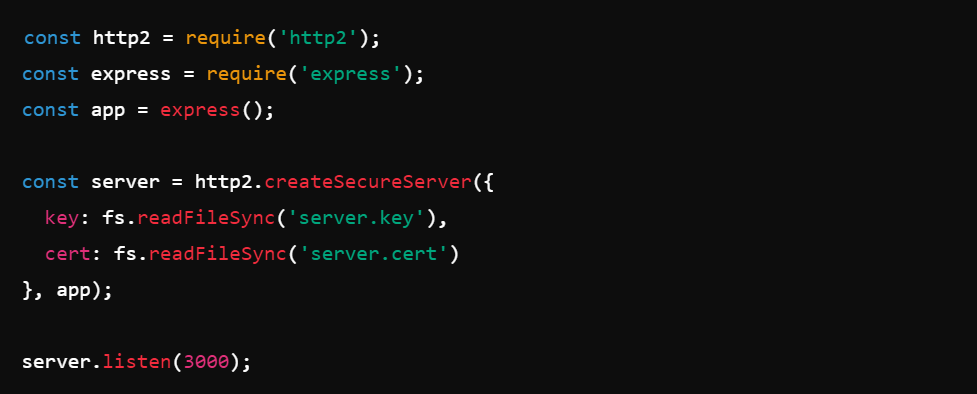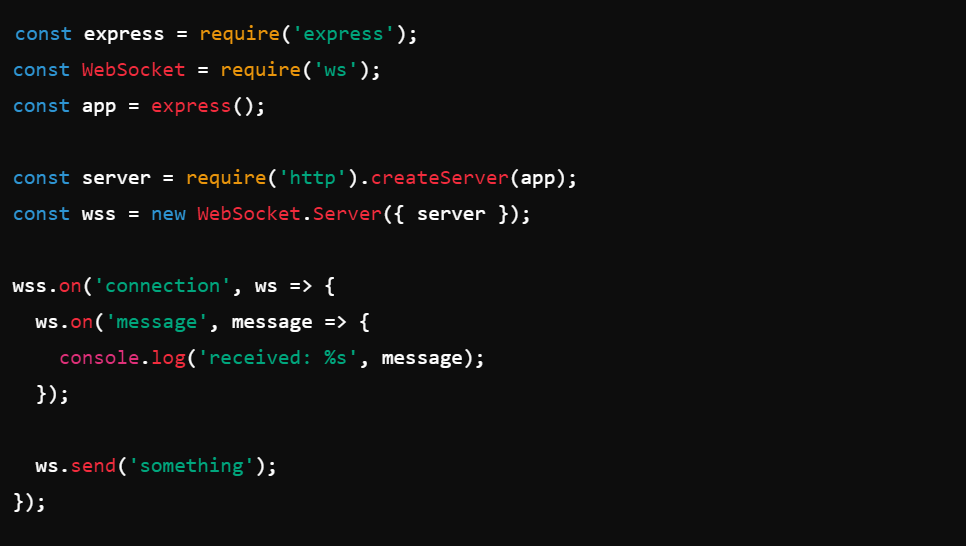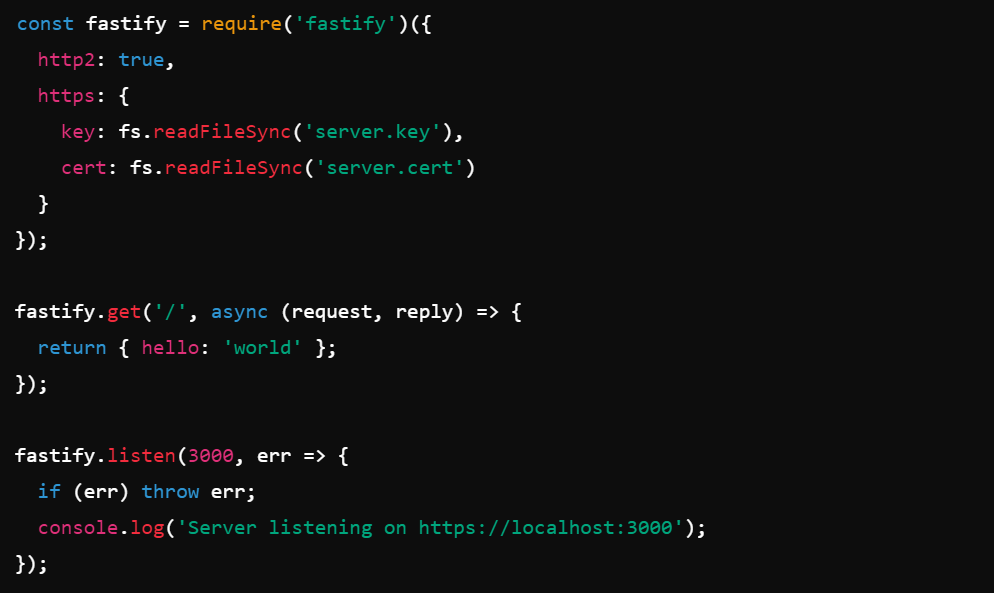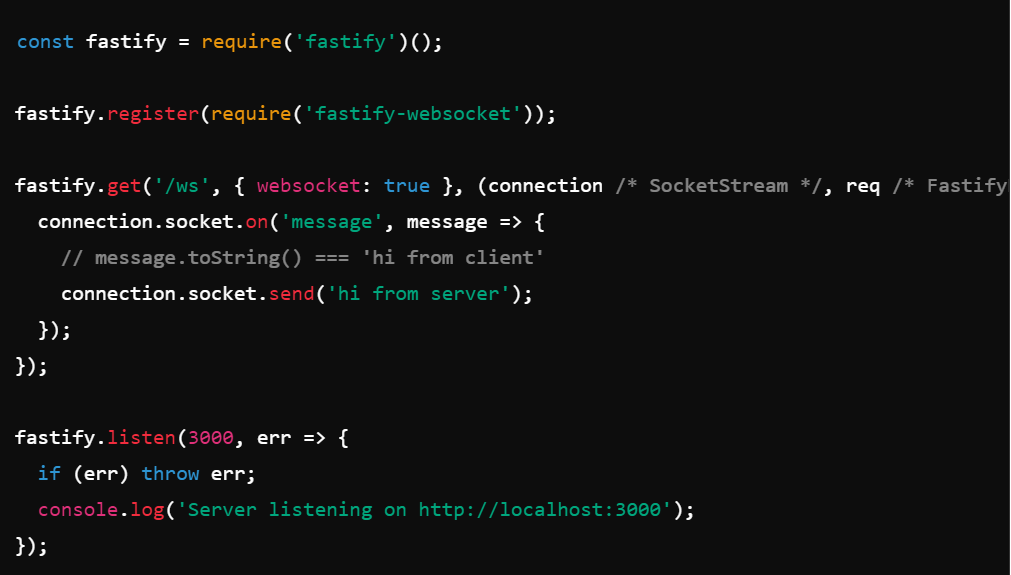Express vs. Fastify: Which Framework Should You Use for Node.js?

Quick Answer: Express and Fastify are both frameworks used for building server-side applications in Node.js, but they have major differences. Express focuses on simplicity and flexibility, while Fastify is dedicated to performance and extensibility.
Are you building a website or app using Node.js? You might be wondering whether to use Express or Fastify. These are two popular tools that help developers create web applications more easily.
In this blog post, we will explore Express vs. Fastify to help you choose the best one for your project. We'll look at how fast they are, how easy they are to use, and what special features they offer. Whether you're a beginner or an experienced JavaScript developer, by the end of this article, you'll have a clear picture of which framework might work better for you.
Let's jump in and explore Express and Fastify. But first, let’s cover the basics before we compare them.
What are Express and Fastify?
Express is a minimal and flexible Node.js web application framework that provides robust features for building web and mobile applications. It's known for:
Simplicity and ease of use
Wide adoption in the Node.js community
Extensive middleware ecosystem
Routing capabilities
Template engine support
Express is often used to create web servers and APIs quickly and efficiently.
Fastify is a high-performance web framework for Node.js. It's designed to be fast and have a low overhead. Key features include:
High performance - one of the fastest web frameworks in the Node.js ecosystem
Extensible plugin system
Schema-based validation
Asynchronous programming support
TypeScript compatibility
Fastify is often chosen for projects where speed and scalability are crucial factors.
Both frameworks are used for building server-side applications in Node.js, but they focus on different things: Express on simplicity and flexibility and Fastify on performance and extensibility.
Fastify vs. Express: Comparative Analysis
So, which one is right for your project? It depends on what features you're looking for. This chart breaks down the main differences between the two platforms. In the following sections, we'll look more deeply at each platform's performance, extensibility and plugins, platforms they support, integrations, security, and more.
Feature | Express | Fastify |
Request Handling Speed | Slower, with around 20,000 RPS (Requests Per Second) | Faster, with around 50,000 RPS |
Memory Usage | Higher memory consumption (~150 MB at 10,000 concurrent connections) | Lower memory consumption (~100 MB at 10,000 concurrent connections) |
Benchmarking Performance | Generally slower in benchmarks | Generally faster in benchmarks |
Learning Curve | Easier to learn, more beginner-friendly | Slightly steeper, requires understanding of async/await |
Ecosystem and Community | Large ecosystem, well-established community | Growing ecosystem, smaller but active community |
Extensibility | Middleware-based, can become unorganized in large projects | Plugin-based, modular and scalable |
Syntax and Style | Classic callback-based syntax also supports async/await | Modern, async/await as the standard |
Built-in Features | Fewer built-in features, relies on third-party middleware | More built-in features, reducing the need for external dependencies |
Error Handling | Basic error handling, requires additional middleware for full control | Better out-of-the-box error handling, with customizable responses |
Development Speed | Fast for simple applications, but can slow down with complexity | Fast for both simple and complex applications |
Performance Optimization | Requires more manual optimization for performance | Optimized for performance out-of-the-box |
Version Stability | Very stable, fewer breaking changes | Stable, but evolving rapidly with new features |
1. Express vs. Fastify Performance Benchmark
After a comparative study, let’s take a closer look at how Express and Fastify compare when it comes to request speed, user scalability, and memory efficiency.
Express Results
Express handled around 20,000 requests per second. Latency was minimal. It reads 4.8 MB per second. A total of 221,000 requests were processed in 11 seconds.
Fastify Results
Fastify handled around 48,000 requests per second, and latency was almost non-existent. It processed 9 MB per second, handling 526,000 requests in 11 seconds.
Fastify is better than Express in all key areas. It handles more requests per second, has lower latency, processes more data per second, and manages a higher total number of requests. Fastify is the faster and more efficient choice in this comparison.
2. Extensibility and Plugins
Next, let's look at built-in tools and plugins you can use to make the most out of each platform.
Express Middleware Ecosystem
Express is like a big toolbox for building websites. It has many ready-made tools (called middleware) that you can easily add to your project. These tools can do various jobs, like tracking visitors or keeping your site safe.
Thousands of these tools are available online, and adding them to your project is as easy as plugging in a new gadget. This makes Express super flexible and lets you build powerful websites quickly.
Integrating middleware is straightforward:
Fastify's Plugin System
Fastify uses a powerful plugin system for extensibility. Plugins in Fastify are more than just middleware; they can extend the server, add decorators, and hook into the application lifecycle. This system provides a clean and organized way to add functionality.
Here's a basic example of using a plugin:
Availability of Third-Party Extensions
Both Express and Fastify have lots of extra bits made by other developers that you can use. Express, being older, has more of these, like a well-stocked library. Fastify has fewer, but they're often really well-made and fast. No matter which one you choose, you'll find plenty of extra features you can easily add to your project.
Both frameworks make it easy to integrate these extensions:
3. HTTP/2 and WebSocket Support in Express and Fastify
Both Express and Fastify support modern web protocols like HTTP/2 and WebSockets, but they approach it differently.
Express
Express doesn’t natively support HTTP/2 or WebSockets, so you’ll need to install additional modules. For HTTP/2, you can use the http2 module provided by Node.js or other community-driven packages.
Similarly, WebSocket support in Express requires adding a separate WebSocket library, such as ws or Socket.IO, to handle real-time communication.
Fastify
Fastify has built-in support for HTTP/2, making it easier to set up.
For WebSocket support in Fastify, you can use the fastify-websocket plugin.
Fastify is easier to use because it supports HTTP/2 and has a simple WebSocket plugin. This makes it a good choice for building modern web apps.
4. TypeScript Integration in Express and Fastify
Integrating TypeScript is crucial to enhance code reliability, maintainability, and developer productivity. Both tools offer this, but the functionality is a bit different.
Express
Express works with TypeScript, but it needs extra setup, like installing type definitions and configuring your project manually.
Fastify
Fastify has built-in TypeScript support, making integration easier and requiring less setup.
Fastify offers a simpler TypeScript experience, while Express needs more configuration.
5. Security Features in Express and Fastify
Security features help developers protect web applications from common vulnerabilities and attacks, ensuring safer user experiences and data integrity. Here's how each platform stacks up:
Express
Express lacks built-in security features, but you can add them with middleware like helmet to protect against common vulnerabilities.
Fastify
Fastify includes some built-in security protections and can be further secured with plugins like fastify-helmet.
Fastify offers basic security out of the box, while Express requires additional middleware for protection. Both can be secured effectively with the right tools.
6. Scalability and Enterprise Readiness
The scalability and enterprise-readiness highlights how these frameworks can support the growth and complexity of modern web applications. This can help users decide which is the most suitable choice for businesses aiming for robust, large-scale deployments versus smaller scale applications.
Express
Express is widely used in enterprise applications, but is not as optimized for high scalability. You need to implement additional tools and strategies to scale effectively, like clustering or load balancing.
Fastify
Fastify is designed with performance and scalability in mind. It has a low overhead and is better suited for handling a large number of requests efficiently. Fastify’s architecture makes it more enterprise-ready, with built-in support for modern features and high throughput.
Due to its performance-focused design, Fastify offers better scalability and is more enterprise-ready. Express can scale but requires more setup and external tools to achieve similar results.
7. Future Outlook
The future outlook for Express and Fastify is promising, as both frameworks benefit from regular updates, widespread popularity, and vibrant online communities. However, there are a few key differences to be aware of.
Express
Express is a mature and stable framework with a large user base. While it continues to receive updates, its development pace is slower, focusing on maintaining stability rather than introducing new features.
Fastify
Fastify is newer and rapidly evolving, with a focus on modern features and performance. It is gaining popularity, especially in projects requiring high performance and scalability. The active community and frequent updates suggest a bright future with ongoing improvements.
Express remains reliable for existing projects, but Fastify’s modern approach and active development make it a better choice for future-ready applications. Fastify is likely to see more growth and adoption in the coming years.
Express vs. Fastify: Which Node.js Framework Should You Use?
If you prioritize performance and scalability, Fastify is the clear winner. However, if ease of use and a mature ecosystem are more important, Express might be the better choice. Consider your project’s specific needs to make the best decision.
When deciding between Express and Fastify for your Node.js project, consider what matters most for your needs. Fastify offers better performance, handling more requests per second with lower memory usage. It’s great for high-performance and scalable apps, with modern features like built-in HTTP/2 support and easier TypeScript integration. Fastify is also better for future-ready projects.
On the other hand, Express is easier to learn and has a large, established community. It’s perfect if you want something simple and stable with a wide range of tools.
In short, choose Fastify if you need speed and scalability. Go with Express if you want simplicity and strong community support.
Want to learn more about Node.js frameworks? Start with CBT Nuggets Trainer Shaun Wassell's OpenJS Node.js Application Developer (JSNAD) Online Training.
delivered to your inbox.
By submitting this form you agree to receive marketing emails from CBT Nuggets and that you have read, understood and are able to consent to our privacy policy.
